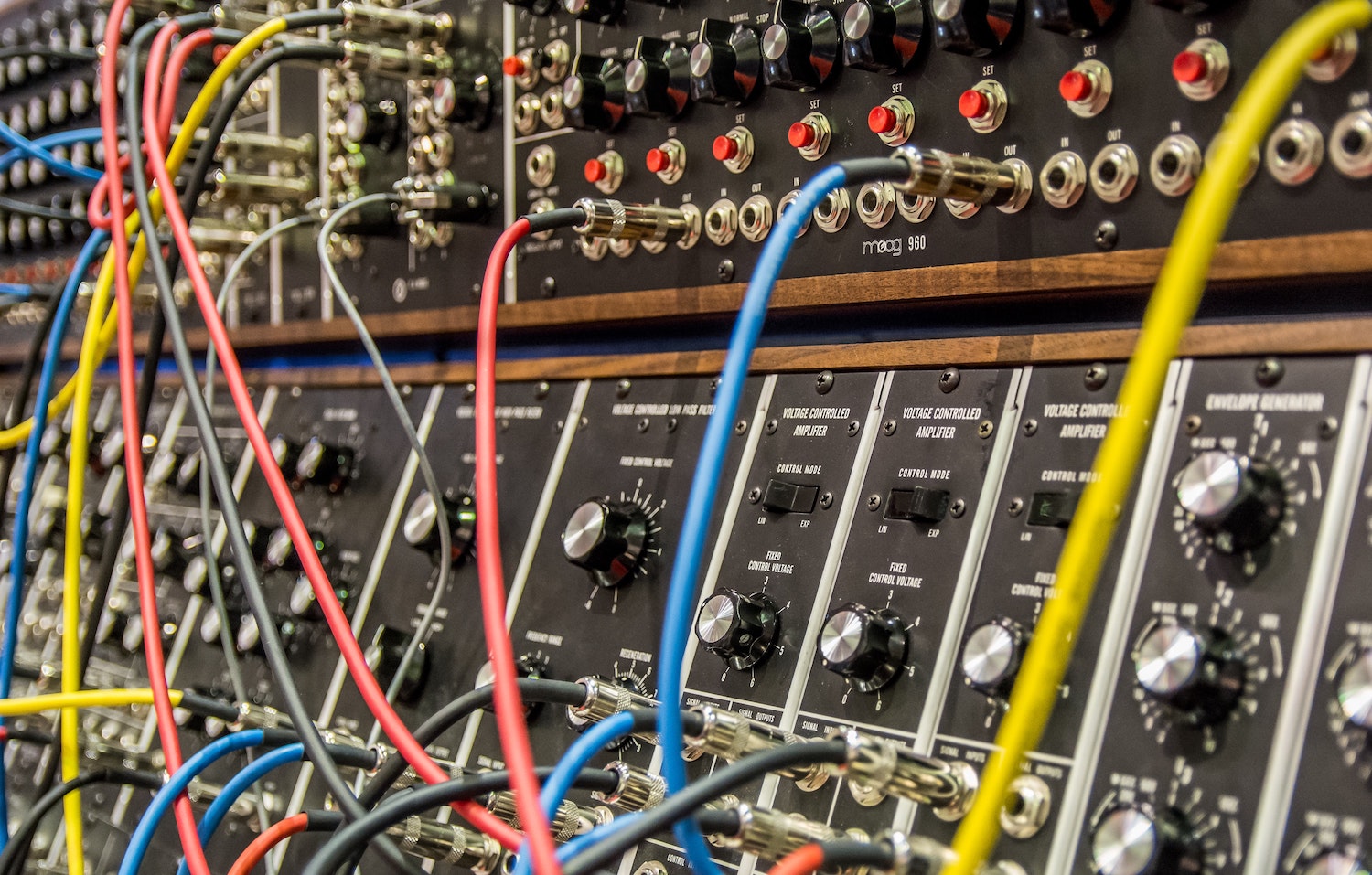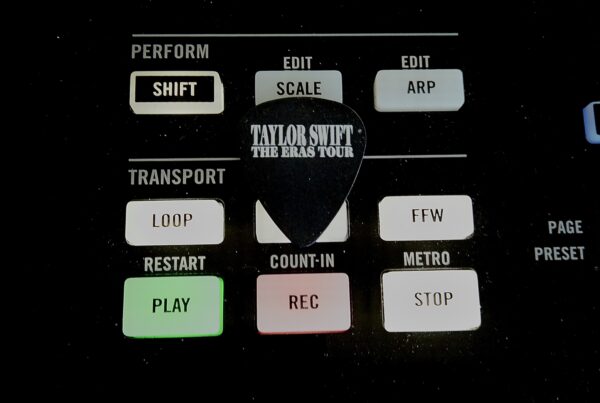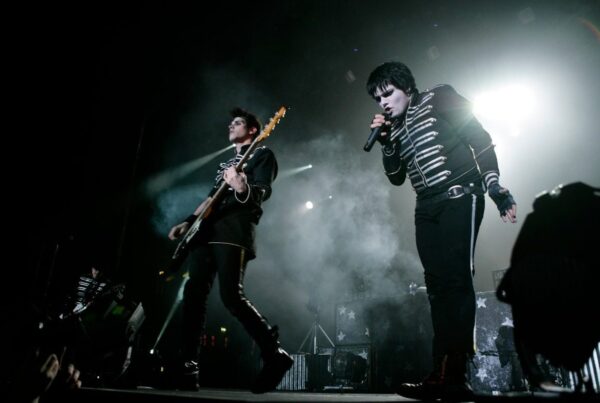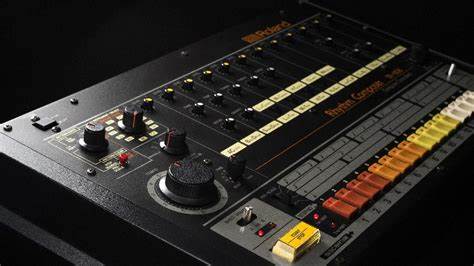Article by Robert King
Having been formed in the mid-1980s, Radiohead are one of the longest surviving bands to have come out of Britain as well as one of the most successful and influential. They have sold over 30 million albums since their first release in 1993 with Pablo Honey to their most recent album A Moon Shaped Pool in 2016. I believe with a band of this magnitude it is appropriate to first look at where they started before looking at how far they have come.
All five of Radiohead’s band members met while attending Abingdon School in Oxfordshire. Their lead singer Thom Yorke, bassist Colin Greenwood, guitarists Johnny Greenwood and Ed O’Brien and drummer Philip Selway first formed a band called On a Friday. The band performed in Oxford until they were signed by EMI, were instrumental in changing the band’s name to Radiohead – taken from a Talking Heads song of the same name.
In 1993 they released their debut album Pablo Honey which received initially negative reception in Britain, however it took off overseas with its lead single …Creep eventually reaching No. 2 on the US modern rock chart. After touring for a while, they began recording their second album, The Bends. The album did significantly better than it’s predecessor however none of the song’s individually were as successful as Creep. Despite this, the album has since been recognised by many publications, including Rolling Stone, as one of the best records of all time. However, the day that Radiohead went from moderate success to critical acclaim was in May 1997 when their third album OK Computer was released. It was their first UK number 1 as well as their first Grammy, winning best alternative album.
It was at this point that the band took a hard right with their music. In October 2000 they released Kid A which was had a much more electronic sound with synths and programmed beats. The album was again a critical success, however split opinions of fans some of whom thought it was too much of a change while others thought that it was their greatest release. Either way the album earned the band their second Grammy of best alternative album. Less than a year later in June 2001, their fifth album Amnesiac was released. It had for the most part been recorded concurrently with Kid A. Amnesiac once again featured a more varied mix of instruments most notably on Life in a Glass House, and was again a critical success reaching No.1 in the UK, and No.2 in the US.
After a more reasonable two-year gap between albums, they released their sixth, and final album on their contract with EMI, Hail to the Thief. This saw a return to their previous rock style of Ok Computer while still incorporating electronic elements. It was another success with the album winning the producer, Nigel Godrich, and engineer, Darrell Thorp, a Grammy for best engineered album.
Their seventh album was released in 2007 on their website to be downloaded for whatever the user wanted to pay for it. They were the first major artist to do this, which caused debate on what this meant for the music industry with some saying it was revolutionary while other artists disagreed with the move. Nevertheless, the album was both critically and commercially successful with several successful singles such as Reckoner and Nude.
2011 saw their eighth effort, The King of Limbs, once again released through their website. The album was a success however some believed it lacked the innovation of previous albums which made them unique to others. After this saw a brief hiatus for the band while the members focused on side projects, with Yorke and Nigel Godrich working on their other band Atoms for Peace and Johnny Greenwood scoring the film Inherent Vice.
The band started working on their most recent album in 2014, though they took a break to work on a song for the James Bond film Spectre. Although the song was ultimately rejected for the film but released for free later that year. In 2016, A Moon Shaped Pool was released which featured a more ethereal sound to what they had done before, with Johnny Greenwood’s orchestral arrangements being a prominent feature, evident in songs such as Burn the Witch and Tinker Tailor Soldier Sailor Rich Man Poor Man Beggar Man Thief. The album topped charts in multiple countries including the UK and US.
Its fair to say that Radiohead’s music is not that of angsty teenagers, at least not their work beyond Pablo Honey. Their music is less accessible and more complex than that of many other modern rock bands. Although even their first effort showed insight into what their later work would be. From the beginning their music has been, funnily enough, creepy and eerie. Their music may on the surface seem depressing and sad but on reflection, a majority of their songs are written in a major key. The reality of it is that it is less a sense of depression but of alienation and counter-culturalism. This is shown in many aspects of their song writing. Ok Computer was inspired musically and lyrically by how fast the 1990s went to the band, and the sense of being left behind. The song Let Down hints towards this with lyrics like “… floor collapsing, falling bouncing back and one day, I am gonna grow wings…” Even songs such as 2+2=5 show an idea of what the band is thinking at the time, with lyrics that don’t entirely make sense. A more in-depth look at their song writing shows that the band is reluctant to use a pure minor key even when the song is in minor. They instead tend to opt for Dorian which is formed by sharpening the 6th of a minor scale resulting in a slightly brighter minor sound. A few examples of this are 15 Step, Lotus Flower, Paranoid Android and the chorus to Lucky. They have also been known to use the Phrygian mode, a sadder minor sound, with examples shown in Pyramid Song and the later parts of Everything in its Right Place. Similarly, when using major keys, they will sometimes use either Mixolydian or, though rarely, Lydian. These are darker and lighter major scales respectively. Though this is not necessarily done intentionally. The fact that Radiohead seem to write music that sounds different to most modern popular music – which for the most part exclusively uses that major and minor scales – shows that they do not identify with that form.
Another aspect of their music is their constant changing sound. Since 1993, they have released nine albums, which for the most part, except from maybe The King of Limbs, have all had a unique sound to them, what sets them apart from each other. Their constantly changing sound has taken them from Grunge to alternative rock to electronic and blending the two, to more abstract and ethereal sounds heard on In Rainbows and A Moon Shaped Pool.
Perhaps this shows a discontent with even their own sound. The constant shift away from what they have made popular and on to something else is something that not many other bands do. This isn’t done to maintain popularity, because as many artists find out, some fans do not like change. However, because of their constant changing sound, their fans are used to this. Radiohead have developed a loyal following of people who they can identify with and who understand them which perhaps accounts for the average fan being older than the angsty teenager who support bands such as Coldplay or Green Day.
On the other hand, as suggested by Friedemann Findeisen in his Holistic analysis of Radiohead, perhaps they don’t want to be understood. Perhaps that is the point of their music, which holds complexities that would need a much larger article than this to explain at full. It could just be a façade preventing anyone from truly understanding them. Obviously this article is a subjective interpretation, so perhaps there is more or less to it. Hopefully by giving the untrained listener a bit of an insight into the band, when next they listen to Radiohead, they can think about and decide whether or not they agree.



